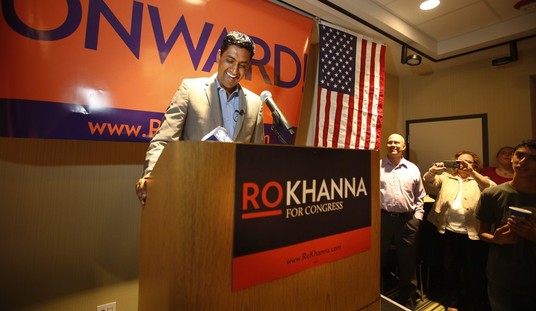That depends — on whether we use a rhetorical definition or a legal definition. Politico polls legal experts, whose answers range from no to not yet:
Treason is a crime so old that it’s the only one specifically defined in the U.S. Constitution, but legal experts suggest it’s a charge that Snowden will most likely never face. And “traitor” seems to fit better in the world of Benedict Arnold and dueling pistols than in today’s sea of electronic surveillance and top secret security clearances.
Constitutionally, treason is defined as “whoever, owing allegiance to the United States, levies war against them or adheres to their enemies, giving them aid and comfort within the United States or elsewhere.”
That’s a tough sell in Snowden’s case, legal experts say.
“I do not believe it is treason,” said George Washington University law professor Jonathan Turley. “There is nothing to suggest that his motivation was to assist our enemies or a foreign power.”
A more cautious response, at least legally speaking, comes from University of Virginia law professor John Harrison, who points out that we don’t know exactly what Snowden did or who he worked with yet:
“Unless the potential defendant is someone who engaged in hostilities, … the question is whether he adhered to the U.S.’s enemies and gave them aid and comfort, which, in turn, depends on who is an enemy,” Harrison said. If the enemy is considered to be a member of Al Qaeda, it opens up all sorts of other questions about the definition of enemy that are still murky in current law.
Harrison clarified, however, that treason isn’t an impossible charge for Snowden.
“If you think that one, Al Qaeda and similar groups are the enemy for purposes of treason; two, his actions assisted them in operations against the U.S.; and three, that was his intention,” Harrison said, “then the argument that it was treason is pretty good.”
A number of people, including John Boehner, called Snowden a “traitor” or have accused Snowden of acting treasonously. That doesn’t necessarily signify a legal opinion, however. That terminology gets used rhetorically and politically — far too often in the latter sense, unfortunately — as a general criticism of anything perceived to harm or weaken the country. For those not inclined to see Snowden as a hero, the epithet fits pretty well, especially considering his flight to China, not exactly seen as a great American ally.
And Snowden’s latest assertion does weaken the US, at least politically, against China:
For months, China has tried to turn the tables on the U.S. to counter accusations that it hacks America’s computers and networks. Now, former intelligence contractor Edward Snowden may have handed Beijing a weapon in its cyber war of words with Washington. …
Snowden’s allegations follow comments last week from China’s Internet security chief, who told state media that Beijing has amassed huge amounts of data on U.S.-based hacking. The official held off on blaming the U.S. government, saying it would be irresponsible and that the better approach is to seek to co-operate in the fight against cyberattacks.
On Thursday, Ministry of Foreign Affairs spokeswoman Hua Chungying said China is a “major victim” of cyberattacks but did not lay blame.
The reaction was stronger online. Air Force Col. Dai Xu, known for the hawkish opinions he voices on his Sina Weibo microblog, wrote: “I have always said, the United States’ accusations about Chinese hacking attacks have always been a case of a thief crying for another thief to be caught.”
The Post cited Snowden as saying the NSA has been hacking into computers in Hong Kong and mainland China since 2009, citing documents he showed the paper, which it said it could not verify. It didn’t provide further details about the documents.
Was anyone surprised by an allegation that we hack and spy on China? These are, after all, espionage agencies. Both the CIA and the NSA have as their mission the collection of intelligence from foreign countries, and China again isn’t exactly a close ally of the US. They are developing into a world power politically, militarily, and economically, and that could create huge risks for the US if we don’t remain aware of their capabilities … and the reverse is true for China as well. The only person who claims to be shocked, shocked by the revelation is Snowden, which prompts the question: exactly what did he think the CIA and NSA did before taking a job in intelligence work?
Legally speaking, we don’t need to debate whether Snowden is a traitor, because the laws he broke already would put him in prison for decades. Rhetorically speaking, I’d say he’s neither hero or traitor until we get more evidence than we have at the moment.







Join the conversation as a VIP Member